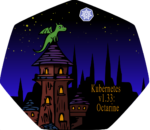
The Cloud Native Computing Foundation today announced that KubeEdge, an open-source edge computing project built on Kubernetes, has achieved graduation status.
KubeEdge, according to the CNCF, expands the cloud native ecosystem to scenarios and industries outside of data centers by bringing the container orchestration and scheduling capabilities of Kubernetes to the edge. Further, it delivers edge application management, cloud-edge metadata synchronization and edge IoT device management.
The KubeEdge project was first open-sourced in November 2018 by Huawei Cloud, and was accepted as “the first cloud native edge project in the CNCF Sandbox project in 2019 and was promoted to an incubating project in September 2020,” the foundation announced.
Among contributors to the project — and there are more than 1,600 of them from more than 35 countries and 110 organizations, the foundation said — are Huawei Cloud, Sony, China Telecom, the SEL Laboratory of Zhejiang University, and other Chinese groups.
“KubeEdge started with a vision to extend cloud native technology to the edge and foster a robust edge-cloud computing ecosystem. Today, it has been adopted across numerous innovative and unforeseen fields. This achievement is a testament to the incredible creativity and dedication of our contributors, whose efforts have driven the project’s success,” said Kevin Wang and Yin Ding, KubeEdge TSC members, in the foundation’s announcement. “Graduation marks a new beginning, and we are excited to explore even greater possibilities for the entire cloud native ecosystem.”
KubeEdge has been deploued in industries such as CDN, intelligent transportation, smart energy, smart retail, smart parks, automobiles, intelligent logistics, finance, power, and blockchain, the CNCF reported.
“Kubernetes was born through usage across massive data centers but has evolved, just like Linux, for new environments and has become a leading platform in edge computing,” said Chris Aniszczyk, CTO, CNCF, in the announcement. “KubeEdge has been at the forefront of this transformation, bringing Kubernetes into new frontiers from electric cars to outer space. We look forward to seeing where the KubeEdge project goes next as a graduate project.”








